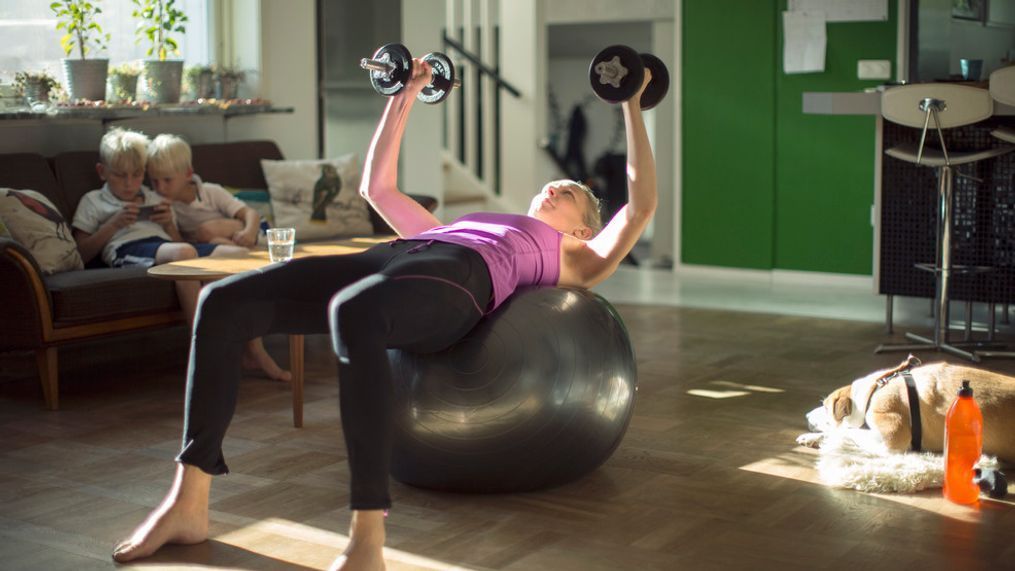Hit the ground running in 2021 with these COVID-19 exercise tips

Gym closures and other COVID-19 restrictions have probably forced you to get creative (or complacent) about your fitness routine. If you haven't found something that works for you yet, that's okay. The calendar has rolled over to a new year, and that means it's time to start fresh. The silver lining for this year is that you don't have to tackle your fitness goals among the crowds at your local gym. You can start in the comfort of your own home.
There are some drawbacks to working out at home, of course. You won't have fancy machines to challenge every muscle in your body. You won't have a personal trainer right by your side (although you can probably find plenty of virtual ones nowadays). The fact is that you'll be starting from scratch, creating your own routine with your own exercises and motivational strategies.
That doesn't need to sound so daunting. Believe it or not, your own body weight can help you accomplish many of your fitness goals. Squats, lunges, sit-ups, push-ups, jumping jacks, punching, and kicking are some practical movements that will help you burn calories on your own. If you want to take your exercise routine to the next level, you can add dumbbells, resistance bands, or a weighted vest into the mix. Every piece of equipment you buy opens up a new collection of exercises for you to try. If you don't want to spend too much money on gym equipment, you can use household items from your kitchen or garage that weigh between 5 to 15 lbs. Try to incorporate strength training whenever possible because muscle tissue burns calories more efficiently than fat.
Recommended exercise time
Health experts recommend 150 minutes of moderate aerobic exercise or 75 minutes of vigorous aerobic exercise per week. Chances are that you'll be aiming for the moderate type more often than the vigorous variety because you're working out at home instead of the gym. Commit to about 30 minutes of exercise per day to gradually reach these goals over the week. You might also find success by exercising during TV commercial breaks or between tasks at work.
The importance of engaging your core
Anytime you can engage your core with your exercises, you'll be setting yourself up for success in fitness and your daily routine. Core exercises help prevent muscle strains and spasms, and they help stabilize your spine. They will also improve your balance and prepare you for many sports-specific movements. Speaking of sports, you can do many recreational activities individually while honoring social distancing protocols. Golfing, swimming, biking, basketball, and racquet sports can be done alone or with your household members.
Keeping your kids active and engaged
COVID-19 restrictions have canceled team sports leagues and reduced the amount of equipment available at public parks. As a result, parents are responsible for keeping their children engaged and active. Try including children in your exercise routine. You can make it fun by making the exercises into a game or by playing a specific sport with them.
Everyone is in a similar boat as they start 2021: trying to balance physical health with mental sanity without the same resources that are usually available. Don't be afraid to get curious and search for new exercises and movements online. The key is finding something that you enjoy so you can stick to a routine throughout the year.
This article is for informational purposes only and is not intended to diagnose or treat any condition. If you have any concerns, please speak with your doctor.
Sinclair Broadcast Group is committed to the health and well-being of our viewers, which is why we initiated Sinclair Cares. Every month we'll bring you information about the "Cause of the Month," including topical information, education, awareness, and prevention. January is Shape Up U.S. Month.
